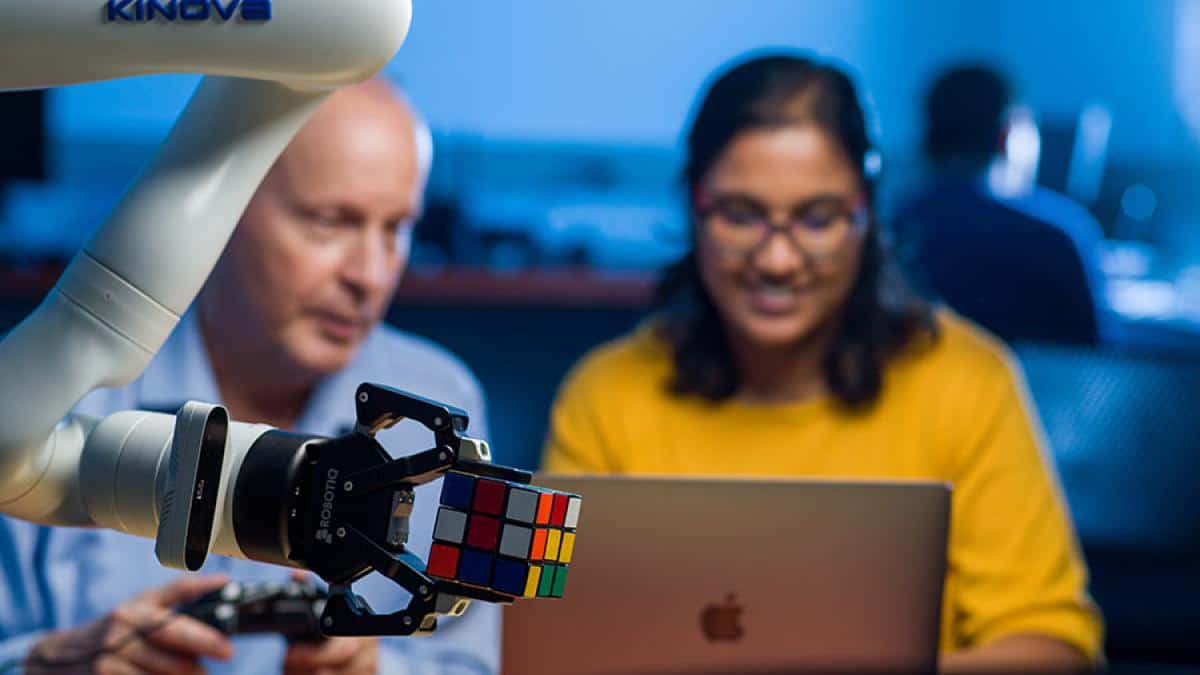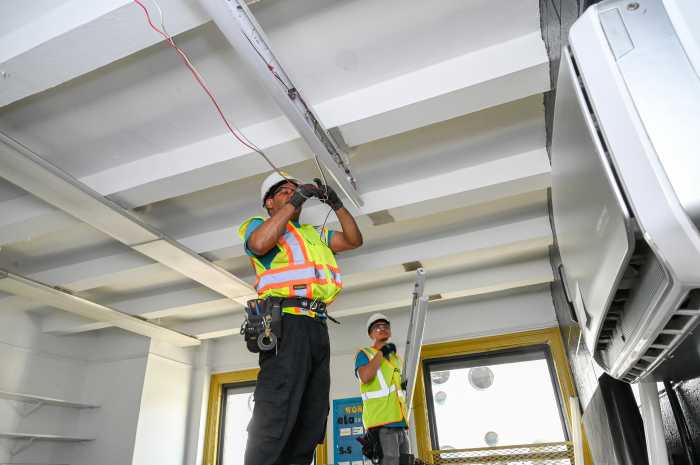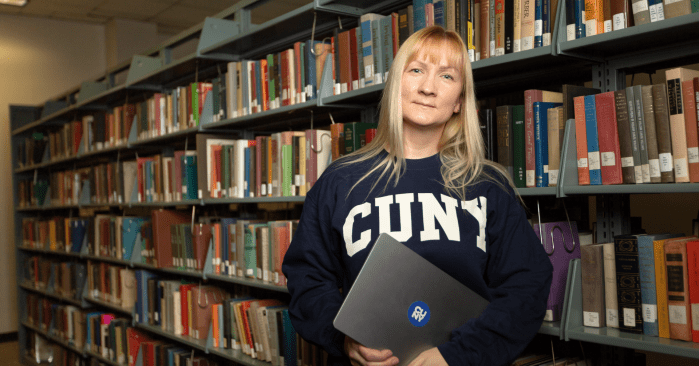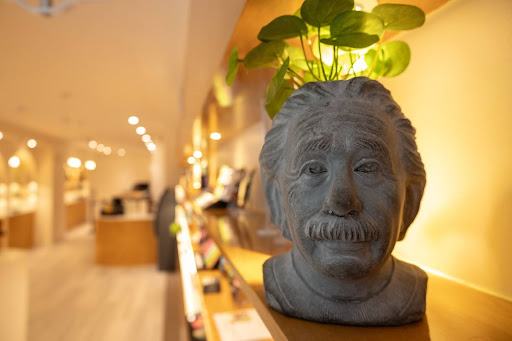Artificial intelligence (AI) dominated the public consciousness over the past year, with a steady stream of headlines on everything from ChatGPT to Google Bard and heated debates over the technology’s benefits, drawbacks, and power to completely transform modern life.
The sudden surge of interest was welcomed by leadership at Pace University’s Seidenberg School of Computer Science and Information Systems (CSIS), where AI has been part of the curriculum for decades.
“AI is a natural for us, but it’s not new,” said Seidenberg School Dean Jonathan Hill. “It’s an amalgamation of longstanding computational tools that our school is uniquely strong in. We have a deep bench of faculty who are internationally known experts in deep learning, machine learning, cybersecurity and more. We’ve been doing this for 40 years, making us one of the oldest dedicated schools of computing in the country.”
Though AI has long been a concentration in both undergraduate and graduate programs, Dean Hill said, Seidenberg is constantly innovating and expanding its teachings in the subject. The school is currently developing new AI-related masters’ degrees in its Computer Science and Information Systems departments and hopes to be able to offer both to students next year.
Prof. Christelle Scharff, Associate Dean and Professor of Computer Science, says the field of AI is “difficult” and requires a solid grounding in a wide variety of disciplines.
“You need to understand math – algebra and some logic,” she said. “You need to be able to program, you need some research, and underneath it all, you need to have critical thinking to be able to understand the limitations and impact of what you’re doing.”
At Seidenberg, which is marking its 40th anniversary this year, the faculty infuses all of this and more into all the different courses they teach, said the associate dean, whose PhD is in symbolic AI. “We are not a newcomer to AI; we’ve been doing it a long time,” she added. “Just now, these courses are incredibly in demand.”
Juan Shan, an associate professor in Seidenberg’s Computer Science Department, said she has been working in AI for close to two decades – ever since her graduate student days. Her current focus is on using machine learning to assist doctors in early detection of breast cancer and other diseases. Seidenberg is uniquely positioned, Prof. Shan said, to provide students who want to pursue a career in AI with support, access to technology, and opportunities to work with faculty members who have federal grants from the National Institutes of Health (NIH), the National Science Foundation (NSF) and others.
Prof. Shan noted that the Bachelor of Science in Computer Science program is accredited by the Computing Accreditation Commission of ABET, the recognized accreditor for higher education programs in applied science, computing, engineering, and technology. The accreditation provides assurance that a college or university program meets the quality standard of the profession for which it is preparing its graduates.
Preparing well-rounded students who understand both applied science behind AI and the ethical implication of their work is critical to ensuring the safety and benefits of the technology in the long term, Prof. Shan said.
“We need to have both in our curriculum,” she explained. “While practical learning can help a student get a job after graduation, sacrificing theory or foundational courses can harm their long-term skillset. If we only teach what’s popular now, students won’t be able to evolve and learn new techniques over the next five to 10 years. There needs to be a balance.”
Prof. Shan served as the thesis advisor for Ian Carvalho, a native of Sao Paulo, Brazil. Carvalho had his first introduction to Seidenberg as an undergraduate through a Brazilian government exchange program. He enjoyed the experience so much that he returned as a graduate student to pursue a master’s degree. Carvalho echoed Prof. Shan’s sentiment related to the importance of building a strong foundational knowledge about AI.
“Having that solid foundation helped immensely when trying to develop applications built on top of it,” said Carvalho, who graduated in 2019 and is now employed as an engineering manager at Capital One. “Frameworks and techniques are evolving every day. Getting a well-rounded and deep background in computer science helps you from becoming obsolete, which is a risk when one focuses too much on the ‘how to.’ That said, the knowledge I acquired is practical on a day-to-day basis.”
Carvalho said he would “definitely recommend” Seidenberg for others who are interested in pursuing a career in computer science or AI, adding: “The amazing Seidenberg community will become your network in a world where being connected is more important every day.”
Seidenberg is growing quickly, with more than 2,400 students enrolled this past fall – twice the size of what it was just two years ago, according to Dean Hill. This is due in no small part, he said, to the high employment rate of Seidenberg graduates. Ninety-five percent are employed or continuing their education after they depart with a four-year degree.
“Pace’s time – and Seidenberg’s time – has come,” Dean Hill said. “We’re a pre-professional school that is developing renaissance people. If you’re really going to leverage AI, or any other technology, you’ve got to be well educated and exposed to diversity. We do that. I sleep well at night because I know our students are going to have great opportunities when they graduate.”



































